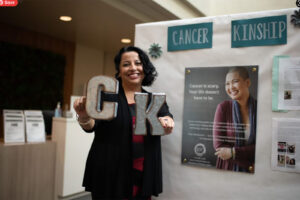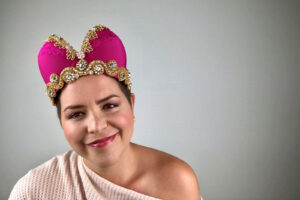It’s Thanksgiving 2019 and my nephew is awkwardly trying to carve the turkey for the first time. He is not happy about it. As my brother watches him struggle, he half-jokingly comments, “Hey! Man up! Show that bird who’s boss!”
My nephew rolls his eyes and shakes his head. We’re all thinking it—this comment, a typical one for my brother, was outdated and belittling.
My brother, like many men, grew up during a time when the world defined its safety through polarities. Things were either this or that, black or white, Republican or Democrat. There was no in-between and certainly no spectrum of choices. This was especially true for gender roles.
His comment to “man up” summarized a philosophy that governed gender roles and offered a stoic narrative of what masculinity stood for.
Identity and gender are a part of society’s labels. They are also vehicles for individual expression and permission for what kind of life is accessible to you. When labels are assigned, you have a limited number of choices available for authentic self-expression. It may narrow your ability to show the breadth of your humanity. The aftereffects of this are residual toxicity.
Suppression like this has resulted in a “toxic masculinity” culture, for example, that has adverse effects both immediately and generationally (as children often look to their parents to define themselves). Toxic masculinity can be defined as aggressive behaviors that suppress emotion or empathy and often utilize violence to prove power. “Toxic masculinity is what can come of teaching boys that they can’t express emotion openly,” writes Maya Salam in the New York Times.
Luckily, this is changing. People exist on a spectrum. This comes from many refusing to adhere to outdated and limiting definitions of who they are. We are moving the needle from externally driven identity labels to internally defined ones.
No longer feeling able to express his true self under outdated parameters of manliness, actor Justin Baldoni writes in his book, “Man Enough,” that it is time to begin to redefine “masculinity — to figure out ways to be not just good men but good humans.” He shares his effort to reconcile who he is with who the world tells him a man should be. And he has a challenge for men. “See if you can use the same qualities that you feel make you a man to go deeper,” Baldoni says. “Your strength, your bravery, your toughness: Are you brave enough to be vulnerable? Are you strong enough to be sensitive? Are you confident enough to listen to the women in your life?”
If identity is your canvas, how you define that identity is the artwork. That cultivation of personal freedom is essential to the growth and evolution of our collective world.
As a biracial woman in America, I have had to release limitations of labels. I have worked to cultivate my own identity, one internally defined by my heart.
A few ways to examine if you are living authentically is to bring awareness to the area in your body that is near the navel. This is an area often referred to as the solar plexus chakra, an energy center within the body that governs our own sense of personal power. When it is in balance, you feel powerful, confident and aligned with your own self-worth (you are your own authority). When this chakra is not balanced, you feel inauthentic, shameful and ruled by the opinions of others.
Say the following statement out loud to notice how this area feels: “I am living the authentic version of myself right now.”
Trust what you notice. Do you feel confident and in your truth, or do you feel there is room for growth? If you feel the latter, you can try the following exercise to move the needle closer to who you are authentically.
Take out a sheet of paper and create three columns:
- Who I am supposed to be
- Who I want to be
- Who I was at six years old
Set a timer for one minute and add words to the first list. Do the same with the second and third lists. Notice in your solar plexus chakra when you begin to feel the shift towards your empowerment. When do you begin to feel free? Circle all the words that bring you to that feeling and create a new list titled “I AM.”
Take a closer look at the role you are playing in your life versus the one you want to be experiencing. Examine what role you are playing and if this is in alignment with your personal narrative or if it conflicts.







